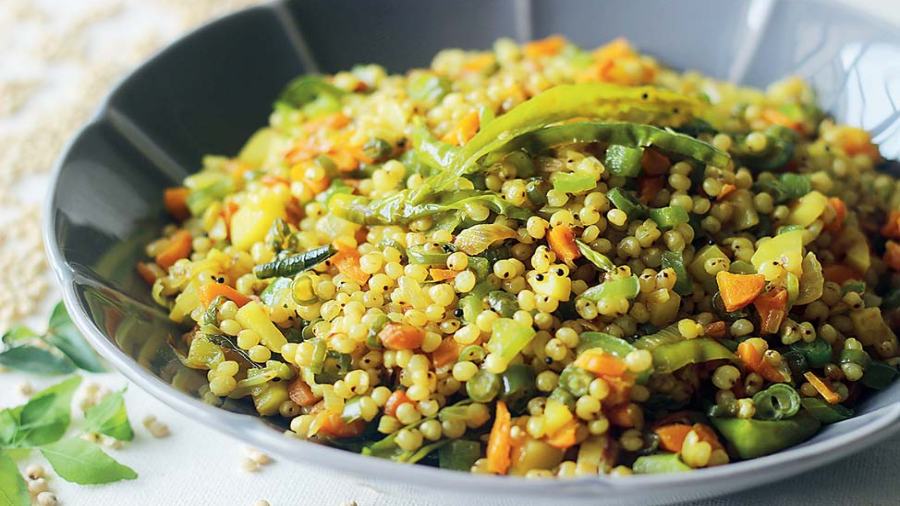The pandemic has been the perfect proofing environment for all things fermented — from sourdough to kefir; the world has changed one microbe at a time. Standing at my work table at Paprika, I have often wondered what this year will bring, and as an epicurean, my spidey senses, aka my taste buds, start to tingle at the unexplored world of upcoming trends.
Flexitarian Diets
The world is waking up to a more holistic plant-based approach to food. The shift to veganism is relevant enough to call it a movement. The effects of animal husbandry on the environment are alarming. People are also more vigilant about consuming hormone-free, antibiotic-free and pasture-raised meats.
Manufacturers of plant-based meat alternatives like Beyond Meat have only made the shift easier to adopt. However, it can prove difficult for some to turn vegan cold turkey —thus the flexitarian diet, where meat becomes a once in-a-while option in a majority vegetarian diet.
Zero-Waste Cooking
The concept of zero-waste cooking is pretty straightforward — to use every part of the ingredient, so as to ensure there is very minimal to no food wastage. Food waste is a harsh reality of the restaurant industry, and ‘ugly’ fruits and vegetables are shoved into a corner. The perfect scalloped potato au-gratin cannot have misshapen spuds, and that impeccably turned out dessert needs that flawless strawberry.
Sustainability demands and depends on the usage of all parts of an ingredient so that our compost bins and landfills breathe a little easier. This year we will see more peel-to-pulp usage of everything in our kitchens. We have already started at Paprika, will you join us?
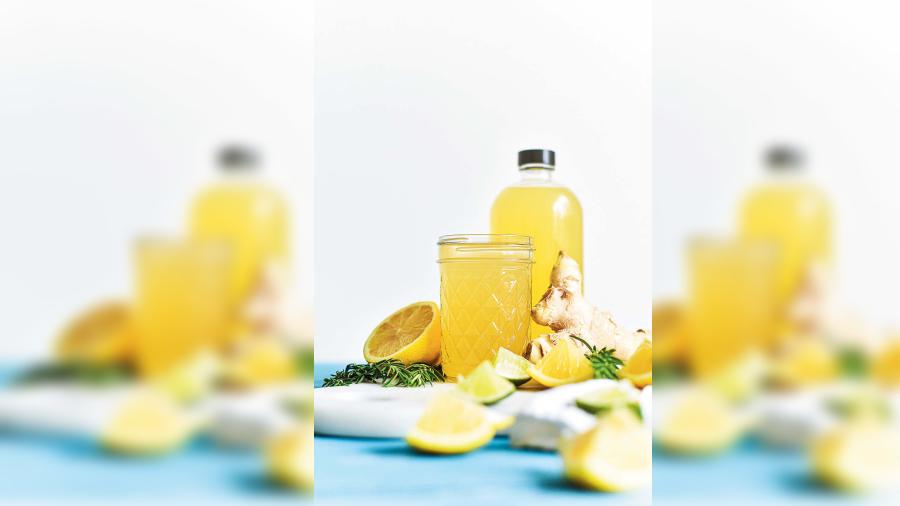
Kombucha a fermented drink
I am Pro-probiotic!
The gut-brain axis is a two-way biochemical signaling that links the emotional centre of the brain to intestinal functions, especially relating to the gut biome. Simply put, your mood and your gut health are intricately related, and it’s about time we respect the fact that what we eat truly defines who we are.
Fermented foods like kimchi and kombucha are already well-loved products that are both gut and vegan friendly. Tempeh is yet another extremely flexible ingredient. Made from fermented soybeans, it lends itself beautifully to Asian, Mediterranean as well Arabic cuisines. Closer to home, dosa, idli and appam are much-loved fermented foods that look to be showcased in new avatars.
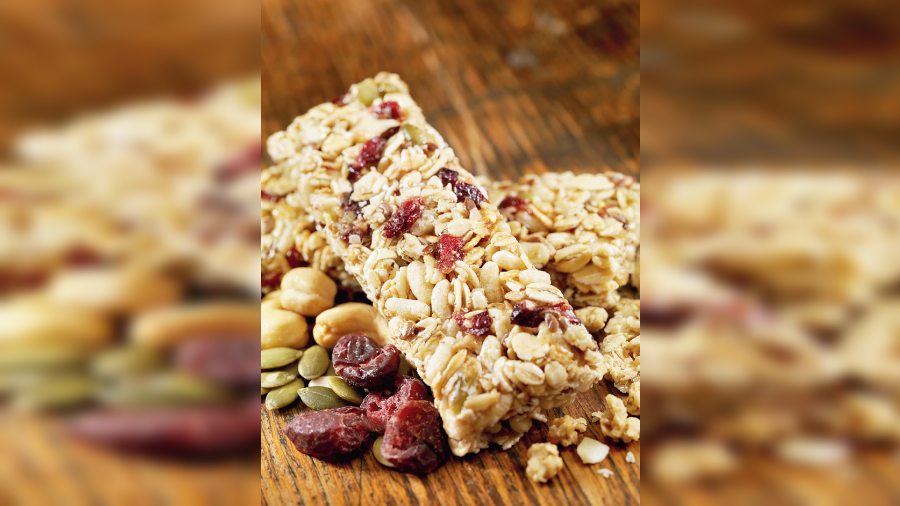
Ingredients in granola bars have nutritional benefits and can have medicinal property too
Nuts about Neutraceuticals
Truth be told, we’ve all seen a lot of bogus diets that work for a minute and leave the body in disarray in its wake. Texts on Ayurveda treat food as medicine. The Chinese school of medicine breaks foods into categories of heat and cold, and the effects it has on our health.
The word neutraceutical is a combination of the words nutrition and pharmaceutical — and used to describe any produce derived from food sources that provide additional health benefits than the basic nutritional value found in food. Superfood trail mixes, protein-rich nibbles and granola contain nutrition like antioxidants and vitamins that are beneficial to overall health. Lycopene, an organic pigment in tomatoes, is a powerful antioxidant that might help protect important cells from damage.
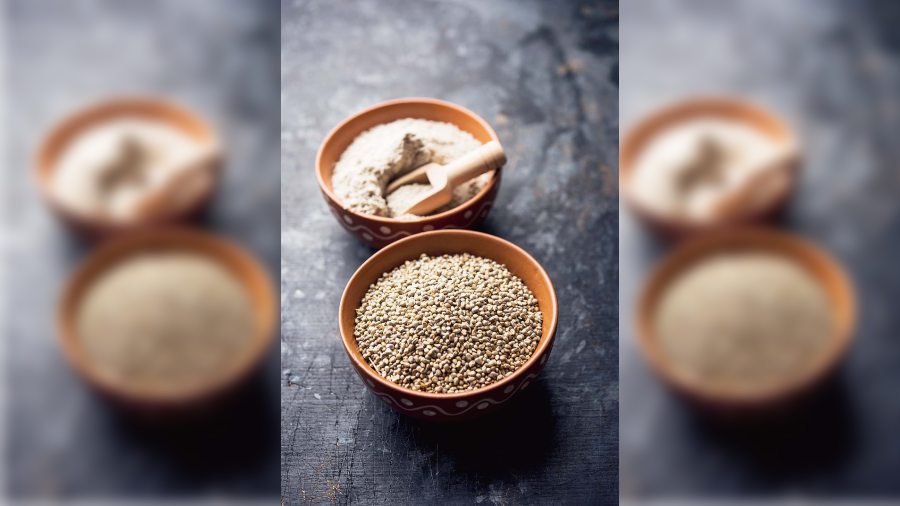
Bajra and Bajra flour
Hyper for Hyper-local
The lockdowns of 2020 and 2021 have taught us that it’s important to rely on sourcing ingredients that are available locally. Our prediction for 2022 is: not only will more consumers be buying local, it will become the mainstay for a long time to come.
Local produce tastes fresher, promotes growth within neighboring communities and most importantly, champions what is regional. Restaurants all over have started incorporating local ingredients in their kitchens, and churning out interesting plates of food.
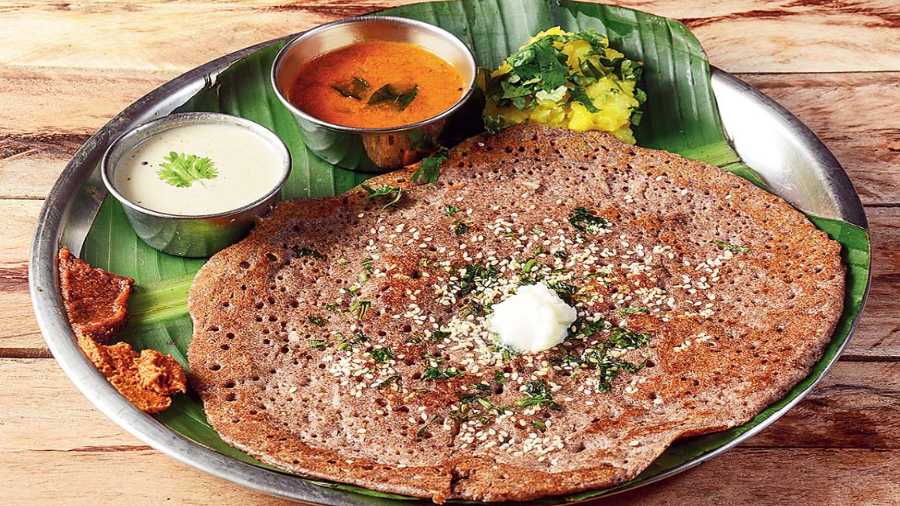
Ragi dosa
We have also seen a shift to using Indian millet flours in the kitchens across the board. From savoury crackers to decadent cakes, jowar, bajra, ragi, and rajgira flours have been ruling the roost. Their gluten-free profile, and high nutritional value make them a ready choice for replacement flours. It helps that they’re locally produced and more price conscious compared to other gluten-free flours such as quinoa.
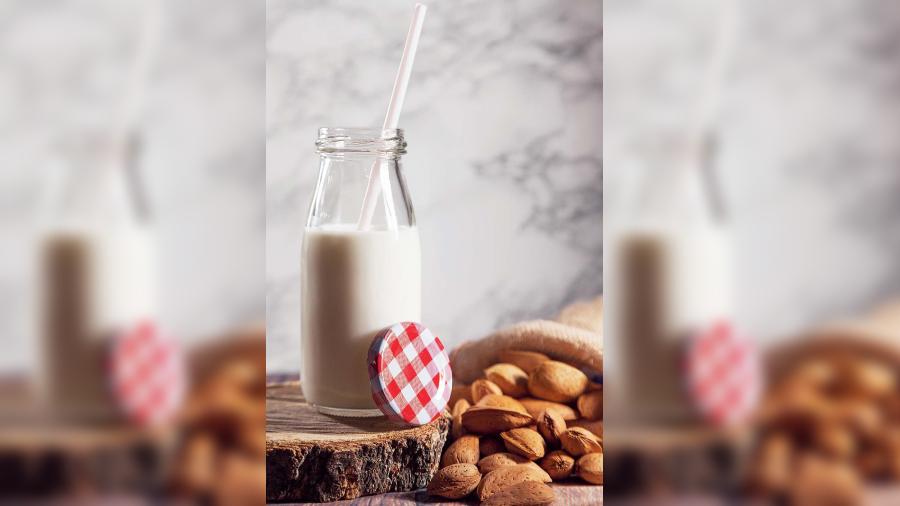
Milk? Or Mylk?
Growing up, a morning that did not include a steaming hot glass of cow’s milk would induce a prophesying fit in my mother. Her concerns for calcium and overall health were solidly, or shall I say liquidly, remedied by a glass of the bovine’s best. It’s safe to say we have come a long way since.
Almond, hemp, cashew, oat, rice, other than being cereals and grains are also the source of milk alternatives, also known as mylk . Other than being vegan friendly, plant-based milks don’t run the fear of being hormone and antibiotic laced, and can be prepared quite easily at home.
If you thought we had run the course of mylk options, hold your horses — there’s also potato milk. Poised to be the hot milk of 2022, it is lower in saturated fats and cheaper to produce.
Cloud Kitchens
According to a study, seven out of 10 Americans order take-out regularly, of which 28 per cent use third-party apps to do so. This staggering figure is a good indication that take-outs are here to stay.
A cloud kitchen is a commercial kitchen space that provides food businesses the facilities and services needed to prepare menu items for delivery and take-out. Their model runs on technology as food delivery apps connect cloud kitchens to their customers. Cloud kitchens do not have any dine-in areas, and avoid high start-up costs and burdensome regulations by being a part of a pre-existing kitchen set up. Low operational costs and a variety of options for the customer make the concept of virtual kitchens a sure-shot winner in the F&B industry.
It’s said, necessity is the mother of invention, and if the pandemic years have taught us anything, it is that we are more resilient than we give ourselves credit for. Just when we thought the F&B industry would take a hit, the world proved us wrong and we saw organic growth both in sales figures as well as food profile.
Food isn’t just sustenance, it is a source of joy, happiness, experimentation and growth — and come what may, good food is always in trend!

Vidisha Bathwal is the founder of Paprika Gourmet, an exotic artisan catering service brand in Kolkata. She’s also a passionate foodie and a fitness enthusiast
